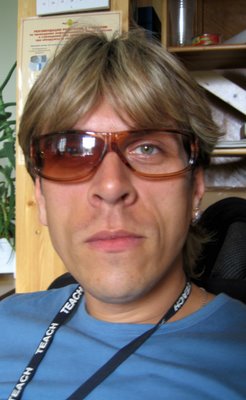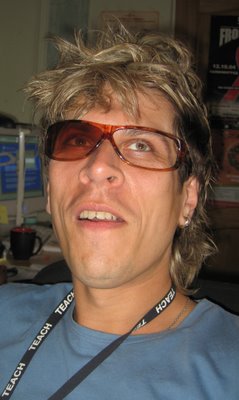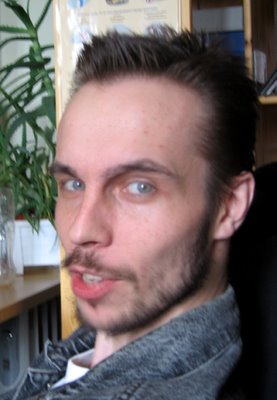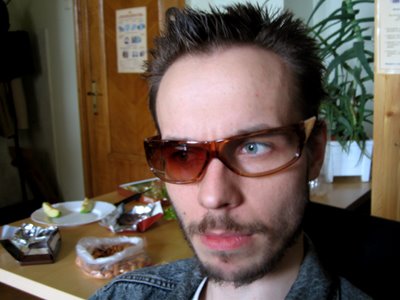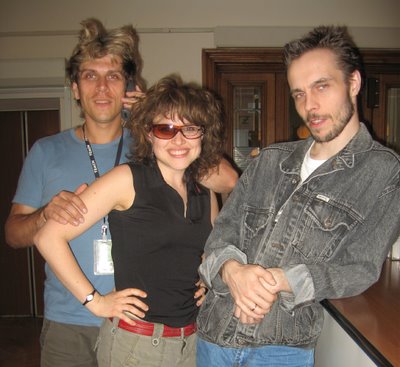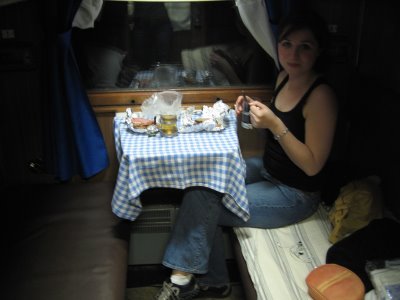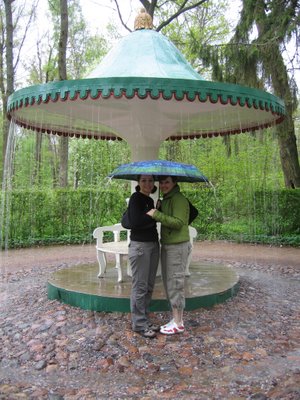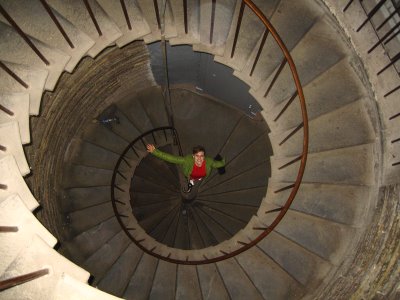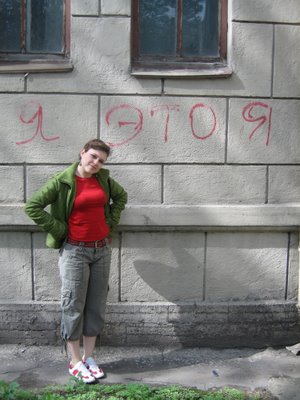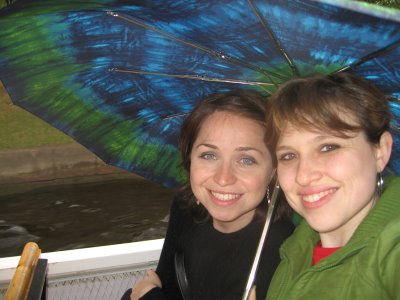Like the wardrobe of any sad story, the day was grey, cold and wet. The action took place in the local hospital of the small city of Kanash of Russia’s Chuvash Republic. From out of the closed door of the infectious disease examination room emerged a young woman, pulling her head-scarf down over her forehead and donning a pair of obscenely large sunglasses. Despite her efforts to flee the hospital unnoticed, her frightened-stiff posture and unnaturally quickened gait caught the eye.
She had agreed to give a closed-face interview to a news station from the city of Cheboksari – the capital of the Chuvash Republic – for a piece on HIV/AIDS in the region. Having come along, I was given the task of waiting for her by the hospital entrance while the reporter and cameraman conducted interviews outside, asking passersby what they knew about HIV/AIDS and what they thought of people who were infected. I had never seen Tanya, and so took to thoroughly scanning every woman who walked by, trying to find a match for the description I had been given. With me, stood our driver, Vasya. A tall, thin, plain and yet pleasant man in his late 30s, Vasya exhibited a naïve curiosity for this topic that he knew nothing about. While we waited for Tanya, I attempted to explain to Vasya the difference between HIV and AIDS, and although my efforts went unrewarded, his desire to understand was refreshing. He asked how HIV could and could not be transmitted, and I recited the lists of can’s and cannot’s that I have so frequently edited. Outraged that there is no cure for HIV, Vasya stood silently for a few moments – the sudden movements of his dark eyebrows the only sign of his pensive deliberation. Suddenly, his face regained its characteristic animation, his eyes lit up and he raced himself to spurt out his great idea: ‘Why don’t the doctors just drain all of their blood and fill them with clean, uninfected blood?’ I explained that people cannot be drained of all their blood and that if it was partially replaced the new blood would instantly become infected as well. He was disappointed but his genuine desire to help was touching.
I began to worry that we had missed Tanya, when I saw her thin, fragile body making its way through the main artery of the hospital. I had no doubt that this was the girl we were waiting for. Her walk lacked its natural bounce, her arms their natural swing, and in an attempt to face as few people as possible, she looked straight forward as if her neck had been soldered into place.
‘Tanya?’ I asked as she flew by me. ‘I’ll be in the church at the end of the street,’ she whispered, her voice trembling. Vasya and I flew out the door behind her but she was already half-way down the block. We flagged down the reporters, who were shooting despite the cold wind and rain, and within a few minutes, Tanya, Vasya and I were in the car, where we waited for the reporters to finish their interviews. I sat beside her in the backseat; Vasya observed us through the rearview mirror. Pressed against the left-hand door, Tanya took off her sunglasses, revealing two small, down-turned, tear-glazed eyes. Her face and features were small and pointed, and her skin pale. She sat clutching her purse as if it could somehow keep her afloat. She gathered the strength to contain herself, but it was only enough for a few minutes – her eyes overflowed and tears began rolling uncontrollably down her face. Tanya has lived five of her 27 years with HIV and nobody but her doctors know she is sick: not her mom, not her boyfriend and certainly not her friends or co-workers.
I ran my hand down her arm, trying to console her, and trying to keep from crying myself. Unsuccessfully fighting her tears, Tanya told us how alone and scared she was. About what a nightmare her life has become since she found out she was sick five years ago. About how hard it was to carry such a ponderous burden without anyone by her side. About how scared she was that anyone would find out that she was sick: after all, in a town the size of Kanash (pop. 55,000; 18.5 sq. km.), if one person were to uncover her secret, it would only be a matter of days before she was fired from her two jobs, her child kicked out of daycare, and she and her loved ones ostracized from society. She sat quietly for a few minutes, her gaze fixed on the seat in front of her, and as her expression gradually softened, I realized that this was the first time – in five years – that she was in the presence of people who knew her HIV-status. I looked up at the rearview mirror to find Vasya’s eyes helplessly staring at Tanya; his expression much like that of a child facing injustice for the first time.
Outside, the rain and wind picked up and I saw the camera man and reporter running towards the car for shelter. They jumped in, wet and shivering, and we took off in search of a spot where they could conduct their interview with Tanya. After a few minutes, Tanya removed the scarf covering her head, revealing a severely receded hairline: the most obvious of the side-effects of the ARV therapy she had been prescribed. Her hairline had pushed back over the very top of her head, and even there, her long brown hair was thin, giving her a sickly look. ‘I had such beautiful hair,’ she said coldly. ‘Everyone is always asking me what happened to my hair, and I always have to make something up.’ At 27, the loss of her hair was another devastating blow.
If being a prisoner inside her own body wasn’t enough, the doctors at the hospital told Tanya that she was the only HIV-positive woman in Kanash. In reality, as of 1 January 2006, there were 179 officially registered HIV cases in Kanash, more than half of which were women. Although she was relieved to find that she was not alone, Tanya understood that she would never meet her HIV-positive peers because of the unrelenting fear of being ‘found out’. Unfortunately, if the interviews collected by the reporters that day are any indication of public opinion, Tanya’s fears are justified. The most common sentiment was that HIV-positive people should be locked up and isolated from society.
We finally found an empty staircase with ample lighting where the reporters conducted their interview: in that night’s news release, her voice would be changed and her face darkened. When they got back in the car, Tanya was more relaxed and even smiled a few times. We drove her home. As we approached her neighborhood, she again covered her head and wiped clean her sunglasses. She opened the door and, with one foot already outside, turned around to face us. She was smiling but tears were once again rushing down her cheeks. ‘Thank you so much for coming to see me,’ she said quietly. ‘You have no idea what this means to me. You all are wonderful.’ With that, she put on her sunglasses, climbed out of the car, looked around and scurried into the building. The reporter, Lena, and I could no longer hold back, and the tears that had been accumulating in the last hour crept silently down our faces. We all sat in silence for most of the drive back to Cheboksari.
Discrimination, intolerance, prejudice, ignorance…words that I had read, edited, spoken and written so many times; words whose meaning has been snubbed by mis/overuse; words that have become cliché: mechanisms of political jargon in the battle against any number of injustices. But after that rainy day in Kanash, in my mind, they all gained new meaning and a new face: Tanya, 27, HIV-positive.
